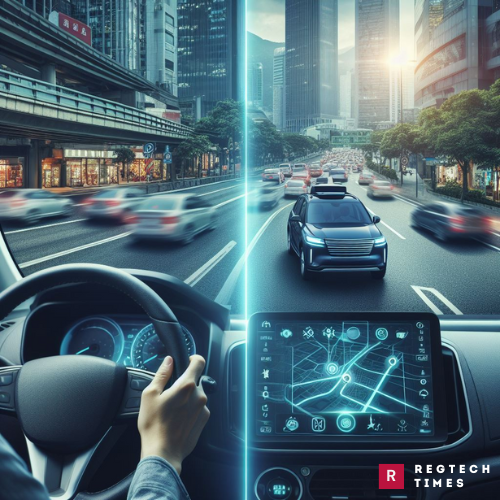In the dynamic landscape of automotive innovation, few companies have captured the public’s imagination quite like Tesla. Renowned for its electric vehicles (EVs) and pioneering advancements in autonomous driving technology, Tesla has emerged as a leading force in the industry. However, recent developments have cast a shadow over Tesla’s ambitions, with U.S. prosecutors launching investigations into allegations of fraud surrounding the company’s self-driving technology. As Tesla faces mounting regulatory scrutiny, the future of its autonomous driving endeavors hangs in the balance.
Allegations of Fraud
At the heart of the matter are allegations that Tesla misled consumers and investors regarding the capabilities of its self-driving technology. While Tesla’s Autopilot and Full Self-Driving systems offer advanced driver-assistance features, such as steering, braking, and lane changes, they fall short of true autonomy. Prosecutors are scrutinizing whether Tesla’s marketing and communications may have given the impression that its vehicles are fully autonomous, potentially constituting securities and wire fraud.
The Justice Department is examining statements by Tesla and CEO Elon Musk suggesting its cars can drive themselves. For instance, one of the videos on its website stated: “The person in the driver’s seat is only there for legal reasons. He is not doing anything. Elon Musk asserted, “The car is autonomously driving itself.” Additionally, he shared a video on social media, stating, “Tesla navigates urban and highway streets without any human input and successfully locates a parking spot.”
Previous Incidents and Investigations
The investigation comes against a backdrop of previous incidents involving Tesla vehicles equipped with Autopilot. Regulators have scrutinized numerous crashes, some of which have resulted in fatalities, raising concerns about the safety and efficacy of Tesla’s self-driving technology. The National Highway Traffic Safety Administration’s (NHTSA) probe into Tesla’s December recall of 2 million vehicles equipped with Autopilot underscores the urgency of addressing these concerns. In a lawsuit concerning a fatal crash involving Autopilot, a Tesla engineer testified in 2022 that one of the videos, shared in October 2016, aimed to demonstrate the technology’s potential but did not provide an accurate depiction of its capabilities at that time.
NHTSA Investigation and Recall: Implications for Tesla’s Autonomous Driving
The NHTSA investigation focuses on the adequacy of Tesla’s recall, which was initiated to address potential safety risks associated with Autopilot. While Tesla has taken steps to update its software and enhance safety features, post-remedy crash events and preliminary tests of remedied vehicles have raised additional questions. Of particular concern is the role of driver misuse in accidents involving autopilot, underscoring the need for clearer communication and user education.
Industry-wide Scrutiny of Autonomous Driving Technologies
Tesla’s challenges are not isolated, as other automakers also face scrutiny over their autonomous driving technologies. Recent incidents involving Ford Motor Co.’s BlueCruise advanced driver-assistance features serve as a reminder of the broader regulatory challenges facing the industry. As automakers push the boundaries of innovation, ensuring the safety and reliability of self-driving technologies remains a paramount concern for regulators and consumers alike.
Global Implications and Regulatory Endorsement in China
Amidst these regulatory challenges, Tesla received a significant endorsement in China for its new driver assistance technology. This development underscores the global significance of Tesla’s efforts in the autonomous driving space and highlights the potential for expansion into new markets. However, regulatory approval in one market does not absolve Tesla of its responsibilities elsewhere, as the company continues to face scrutiny from regulators around the world.
Potential Impact on Tesla’s Future
The outcome of the investigations and regulatory scrutiny surrounding Tesla’s self-driving technology could have far-reaching implications for the company’s future. Legal proceedings and regulatory enforcement actions could result in significant financial penalties and reputational damage for Tesla. Moreover, the uncertainty surrounding the regulatory landscape may dampen investor confidence and hinder Tesla’s ability to advance its autonomous driving initiatives. The news of the investigation led to a drop in Tesla’s stock by as much as four percent.
Balancing Innovation with Compliance
As Tesla navigates the regulatory crossroads, it faces a delicate balancing act between innovation and compliance. Clear communication, robust safety measures, and proactive engagement with regulators will be crucial in addressing concerns and rebuilding trust among consumers and investors. Tesla must demonstrate a commitment to transparency and accountability in its dealings with regulators and the public to mitigate the risks associated with regulatory scrutiny.
In conclusion, Tesla’s journey towards autonomy is fraught with challenges, but it also holds tremendous promise for the future of transportation. By addressing regulatory concerns head-on and prioritizing safety and transparency, Tesla can pave the way for a new era of mobility where cars truly drive themselves with confidence and reliability.
However, navigating the regulatory landscape will require Tesla to tread carefully, ensuring compliance with legal and regulatory requirements while continuing to innovate and push the boundaries of automotive technology. As the investigations unfold and regulatory scrutiny intensifies, Tesla’s ability to navigate these challenges will ultimately determine its success in shaping the future of autonomous driving.



